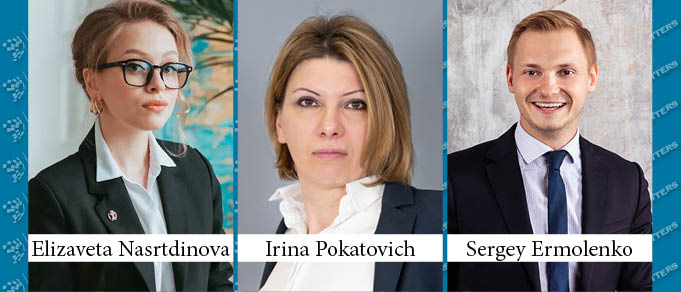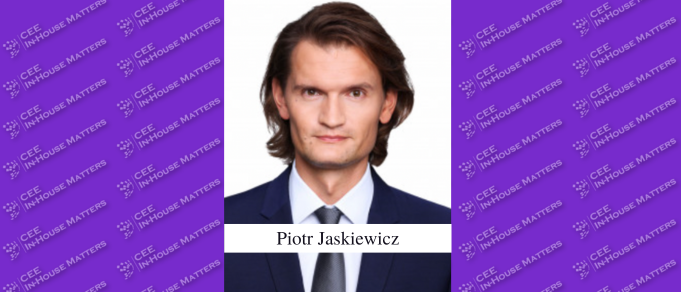On February 24, 2021, CEE Legal Matters reported that Russia’s Intellectual Capital law firm had persuaded the Moscow Arbitrazh Court that a requirement that participants in a Rosatom tender for legal counsel be ranked in Legal 500 and Chambers and Partners was illegal and violated Russian competition law. CEELM spoke with several lawyers in the market to learn more about the matter.
The USSR has had a long history of research in the field of nuclear physics, dating all the way back to 1921 and the establishment of the Radium Laboratory. Following the collapse of the Soviet Union, The Russian Federation continued a significant portion of the former country’s nuclear program. Russia’s civil nuclear infrastructure fell, at first, under the purview of the Federal Agency on Atomic Energy, the successor to the Soviet Ministry of Medium Machine-Building.
However, the agency was replaced on December 1, 2007, by the newly formed State Atomic Energy Corporation Rosatom, or Rosatom for short. Shortly after its establishment, Rosatom began the consolidation process of all the nuclear enterprises and industry institutes into a single mechanism. As of 2019, the corporation operates 36 nuclear power plants with an installed capacity of 30.3 gigawatts across the Russian Federation and it produces around 19% of the country’s electricity. According to Rosatom, “by the end of 2019, intergovernmental agreements had been concluded with 74 countries, including agreements on the construction of nuclear facilities in 20 countries,” and the corporation’s “overseas business portfolio includes 36 power units in 12 countries, with 25 power units in nine countries currently at the active stage of implementation.”
Rosatom’s international activity has not been limited to nuclear power plant construction only. In fact, the corporation has been very active in protecting its intellectual property abroad. For instance, the corporation obtained 443, 417, and 439 foreign patents in 2017, 2018, and 2019, respectively.
In the summer of 2020, Rosatom turned to Russian law firms for help with international patent registration. The corporation organized a public tender but opted to include one specific criterion. Namely, in order for law firms to participate, the criterion required them to be simultaneously ranked by both the Legal 500 and Chambers and Partners directories in their respective Intellectual Property sections for Russia. According to Irina Pokatovich, Head of Antimonopoly at Moscow-based law firm Intellectual Capital, a total of three firms took part in the tender – DLA Piper, Gowling WLG, and her own. She explains that only Gowling WLG met the restrictive criterion, while the other two applicants were not admitted to the competition.
Intellectual Capital considered the requirement to be wrong and unfair. According to Pokatovich, Intellectual Capital argued that a firm does not have to possess experience in obtaining international patents in order to be ranked in the aforementioned legal directories. In other words, Pokatovich says, “being ranked does not in any way confirm qualifications in this particular area.” What’s more, she says that Rosatom paid no attention to the technical documentation submitted by her firm that actually proved the firm’s qualifications.
Pokatovich admits that the controversial condition can be a part of the evaluation process during the tender itself, but she stresses that the criterion should not preclude law firms from participating altogether. Moreover, she explains that the negative practice of introducing requirements of this kind in legal services procurement procedures has been on the rise lately in Russia and that the trend could be detrimental to many local law firms, as their applications are automatically rejected because they are not ranked in international legal directories. “According to statistics compiled by Russian legal website Pravo.ru, out of 100,000 law firms existing in the Russian Federation, only less than 1% are simultaneously present in the ratings of both Legal 500 and Chambers and Partners in Russia, with the overwhelming majority of them being foreign law firms,” she says. “Thus, the remaining 99% of the market will not be able to participate in procurement procedures,” she adds. Pokatovich further explains that, with Rosatom being a state corporation, the procurement process was organized in the interest of the Russian Federation. “According to the Government Decree No. 925 of September 16, 2016, goods of Russian origin, as well as work or services performed by Russian persons should have priority over goods, work, or services of foreign persons during procurement procedures held by Russian state-owned companies,” she says. “However, it is unlikely that Russian law firms would be able to take part in procurement procedures under such controversial requirements, as only large foreign-owned law firms are able to meet them,” she notes.
Her views are contrasted by those of Sergey Ermolenko, Partner at FBK Legal. “When assessing the legitimacy of using international ratings in the selection of suppliers, I would start with the fact that any procurement procedure inevitably restricts competition to some extent,” he says. According to him, limiting the competition is the very purpose of the procurement, as it “allows you to cut off market participants whose qualifications do not meet the customer’s requirements.” Ermolenko ponders whether the supplier’s qualifications correlate to its position in the rankings, but concludes that the use of said rankings can be acceptable if they maintain the competition between the “top” suppliers represented in them. Still, he notes that the rankings are used much more often as additional criteria, than as an “entry ticket” and he deems the first approach to be fairer. While he believes that the requirements Rosatom set in the disputed tender are legitimate – albeit not flexible – he expresses doubt that this approach will become widespread in the future.
On the other side, Kniazev & Partners Advocate Elizaveta Nasrtdinova comments that it is “impossible to objectively say who is right in the dispute between Rosatom and Intellectual Capital, from my point of view.” She explains that, on one hand, she understands the motives of Rosatom. On the other, she fully supports the position of her colleagues on the illegality of including the disputed requirements, which, she says, “was also confirmed at two levels – by the Federal Antimonopoly Service and the Moscow Arbitration Court.”
Nevertheless, Intellectual Capital decided to contest Rosatom’s decision, so the firm filed a complaint with the Federal Antimonopoly Service of Russia on September 7, 2020, in the case number 077/07/00-14863/2020. “We insisted that Rosatom held a non-competitive tender, violating the Federal Procurement Law 223-FZ,” Pokatovich says. In its decision on October 9, 2020, the FAS agreed with Intellectual Capital’s stance. “The FAS deemed the complaint as justified and ordered Rosatom to reconsider the tender applications without taking into account the controversial criterion,” Pokatovich explains.
However, Rosatom was not overly eager to abide by the decision, so the corporation brought the case before the Moscow Arbitration Court and requested that the previous decision of the FAS be annulled. The court reached its decision on December 4, 2020, in which it confirmed the legality of FAS’s decision and rejected Rosatom’s claim. As a result, Rosatom had to reassess Intellectual Capital’s application and, this time around, the firm won the tender. Soon after, according to Pokatovich, her firm and Rosatom signed an Agreement on the Provision of Legal Services on January 11, 2021, but not without the latter trying to further obstruct their cooperation. According to her, Rosatom was adamant about not working with Intellectual Capital so, despite the agreement, it filed an appeal with the Ninth Arbitration Court of Appeal.
Oddly enough, according to Pokatovich, the court found the previous decisions of the FAS and the Moscow Arbitration Court illegal and ruled in favor of Rosatom on April 14, 2021. Two and a half months later, on July 1, Intellectual Capital received notification of unilateral termination of their agreement from Rosatom. During the time the agreement was in force, Rosatom continuously refused to delegate work to the firm and Pokatovich attests that “from the moment of signing the agreement until the moment of its termination, the State Atomic Energy Corporation Rosatom did not entrust Intellectual Capital with tasks on the subject of the agreement.”
The battle will not stop here, though, as Pokatovich explains that her firm plans to take further action. “We plan to apply to the Moscow Arbitration Court for the recognition of the agreement as valid,” she says. She invokes Clause 14 of the Ruling number 54 of the Plenum of the Supreme Court of the Russian Federation on November 22, 2016, which states that “when a party exercises its right to unilaterally change the terms and conditions of an obligation or to unilaterally refuse to perform it, it shall act reasonably and in good faith, taking into account the rights and lawful interests of the other party.” Pokatovich explains that her firm did not shy away from fulfilling its obligations under the contract, while Rosatom failed to fulfill its part of the deal. Intellectual Capital also plans to file a Cassation Appeal with the Supreme Court of the Russian Federation.
Finally, according to Pokatovich, Rosatom’s need for legal services has not ceased, so the corporation announced a new tender under the same requirements and for the same scope of work as in the previous one. Pokatovich says that her firm also filed a complaint with the FAS concerning the latest tender procedure, which was again deemed as justified.
The resolution of this case remains to be seen.
At the time of publishing, Rosatom did not reply to CEELM’s inquiries on the matter.
This Article was originally published in Issue 8.8 of the CEE Legal Matters Magazine. If you would like to receive a hard copy of the magazine, you can subscribe here.





















